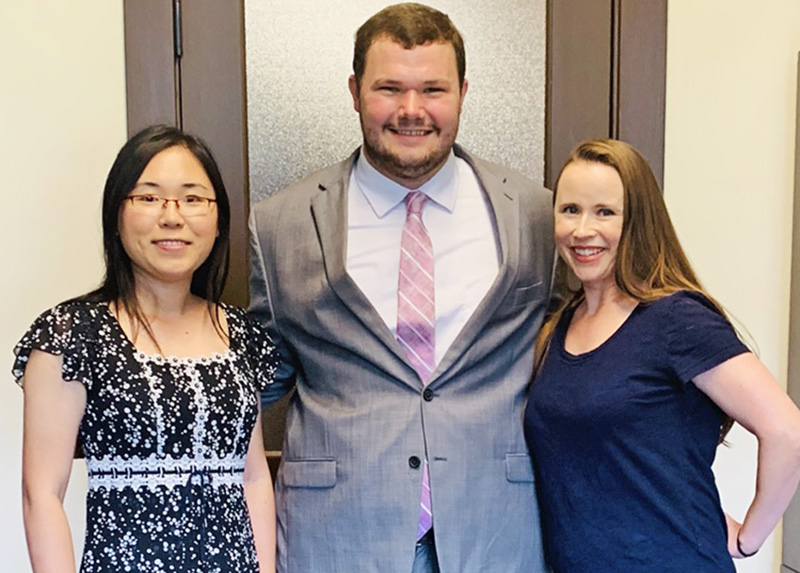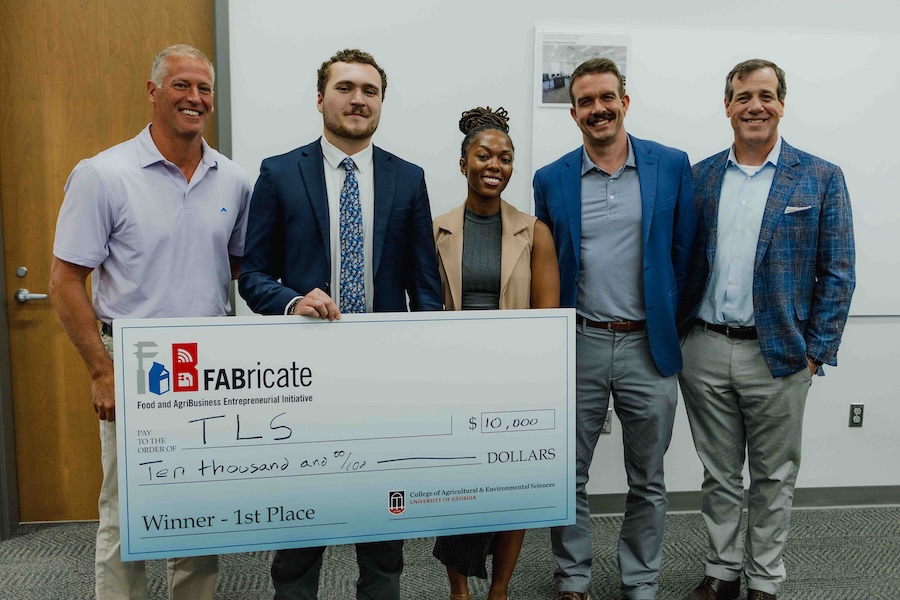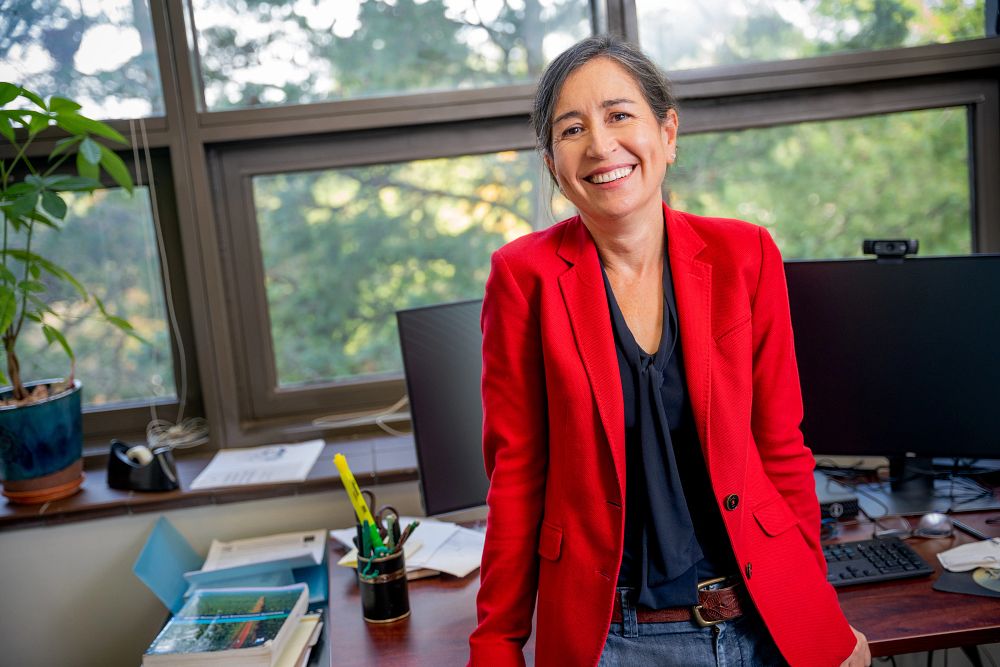
They say it takes a village. When it comes to protecting the Upper Floridan Aquifer (UFA), no metaphor could be more appropriate.
The Floridan Aquifer Collaborative Engagement for Sustainability (FACETS) project brings together experts from the University of Georgia College of Agricultural and Environmental Sciences (CAES), University of Florida, Albany State University and Auburn University to ensure economic sustainability of agriculture and silviculture in north Florida and south Georgia while protecting water quantity, quality and habitat in the UFA and the springs and rivers it feeds.
The UFA provides agricultural and residential water to Georgia, Florida and Alabama, according to Rachel Judd, who earned her master’s degree in the CAES Department of Agricultural and Applied Economics and joined the project two years ago as a graduate student. Judd was one of nine national finalists in the Agricultural and Applied Economics Association’s Extension Competition for Graduate Students for her work on the FACETS project.
“There was a lot of disagreement on prioritizing water quality versus water quantity and finding the main goal in water use,” Judd said. “A team came together to identify ways in which quantity and quality can be maximized.”
The project team includes Extension and research scientists, economists, agricultural engineers, agronomists and communication specialists — all of whom work together to propose different management systems for the UFA. A management system is a recommendation based on research and technology that experts can encourage a producer to adopt, including irrigation, cover crops, nutrient management, and other production operations, according to Judd.
Those recommendations then went through numerous rounds of review and feedback from the project advisory committee, according to Yangxuan Liu, assistant professor in the Department of Agricultural and Applied Economics.
An opportunity for students to gain real-world experience
Liu joined Amanda Smith, co-principal project investigator and senior public service associate in the Department of Agricultural and Applied Economics, as co-advisor to Guy Hancock, an Agriculture and Natural Resources agent for UGA Extension’s southwest district who was a graduate student when the project began.
“Guy Hancock began digging into the FACETS project and collaborating with the team in developing different management systems for agricultural production, including cotton, peanut, corn and pasture,” said Smith, who served as co-advisor with Liu for Judd’s master’s degree. “Rachel came in to pick up Guy’s work on updating the budgets for each of the different management systems and added a risk component; including stochastic yields and prices to expand the economic analysis for cotton and peanut production.”
Hancock completed extensive research early in the project, interviewing UGA Extension agents, production specialists on the cotton and peanut teams and agribusinesses in the UFA region. Based on that work, Judd updated the enterprise budget, a document that summarizes the revenue for a specific crop and the cost component, similar to a household budget. Enterprise budgets are used to predict cost and revenue – and ultimately final profitability – on crops produced under different management systems.
“Rachel incorporated the enterprise budget and the UGA irrigation budget to determine the impact on the different management systems for producer profitability,” Liu said. “If you can reduce fertilizer use, it reduces input cost and has better impact on the environment. Same with irrigation. There is also a cover crop component of the analysis. It is a whole-system approach instead of focusing on each individual element.”
The project advisory committee includes specialists from the Florida Department of Agriculture, Georgia Farm Bureau, county commissioners, environmental organizations, farmers from Florida and Georgia and other leaders in agriculture and forestry.
“It was an honor to work on this multi-university project to help ensure long-term water quantity and quality for Georgia, Florida and Alabama while maintaining economic sustainability for all stakeholders,” Hancock said. “It is my hope that our work on this project will help all three states navigate water issues for years to come.”
The FACETS project, funded through the USDA NIFA Agriculture and Food Research Initiative and recognized as a NIFA Regional Center of Excellence project, is set to end in summer 2023. Visit floridanwater.org for more information and project updates.



